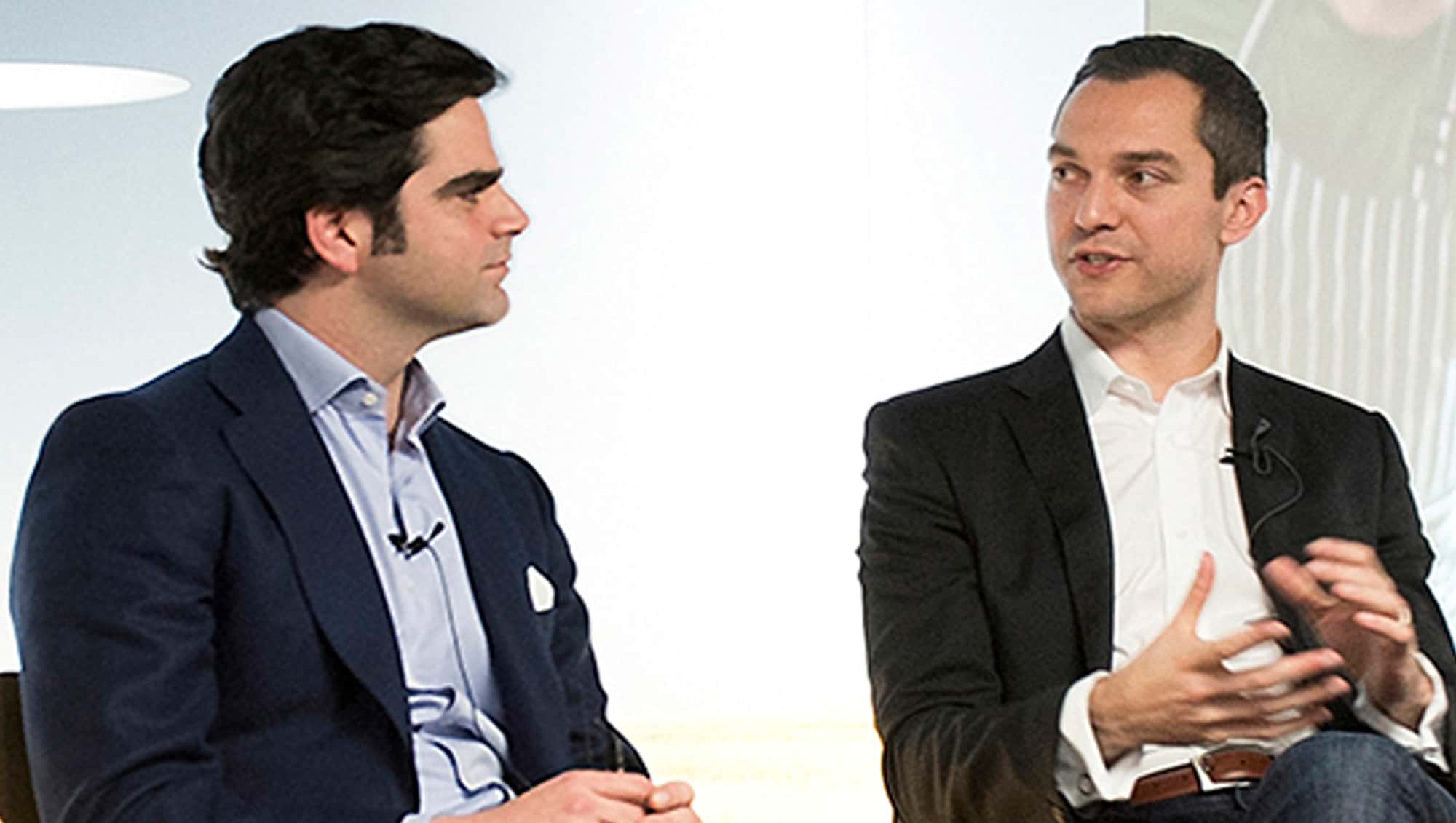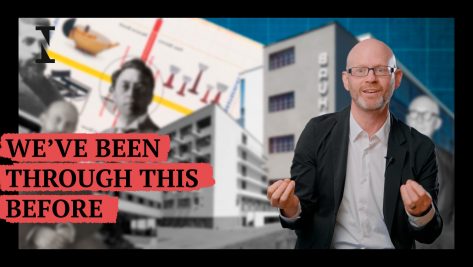Diego del Alcázar Benjumea: You and your co-founders are very young. You’re millennials, like Mark Zuckerberg or Daniel Ek. How are corporations attracting this talent?
Nathan Blecharczyk: When we survey people about Airbnb and their embrace of it, we see a stark contrast between millennials and those who are older. Millennials get it, they love it, and they lean into it. Others eventually like it too, but are much more resistant to change. I think it’s because millennials grew up with the Internet in a period of dramatic shifts technology-wise, so they are used to embracing constant change and being at the forefront.
To attract them to a company you need to paint a big vision for how you’re having an impact in the world. It’s not just a job; it’s kind of like a calling. We also see a lot more blending of work and personal life, so we try to create an environment that’s quite flexible, that allows people to work hard but also to take their time when they need it.
Diego del Alcázar Benjumea: Airbnb is a huge company now, but I imagine you’ve faced many challenges getting to where you are today. One of them is the issue of roles in the organization. How do you deal with that?
Nathan Blecharczyk: We’ve experienced hyper-growth. It sounds great, and it is, but it also creates some problems. We felt it the most in 2011, where at the start of the year we had 35 employees and by the end we had 400. That was challenging because we had no executive team at the time, no managers. That works when there are 35 of you and you all fit in the same room; it doesn’t work at 400. Suddenly, the wheels kind of fall off the bus, and yet the bus never stops. It just goes faster and faster. At that point, communication becomes much more important, to make sure that everyone is on the same page and clear about the goals.
To attract millennials to a company you need to paint a big vision for how you’re having an impact in the world. It’s not just a job; it’s kind of like a calling.
Diego del Alcázar Benjumea: You are in China too. That’s a very challenging market, right?
Nathan Blecharczyk: From the beginning, Airbnb has been an open platform where anyone in the world could sign up, so we had users in China too. However, we didn’t really take off in that market until we started focusing on it.
The first thing we had to do was fix the product because, as you know, China has a firewall to block certain information on the Internet. That impacted performance, since our website depended on open-source projects provided by Facebook, Google, etc., which are not allowed in China. So we had to spend a couple of years fixing that and integrating with local service providers. Once we did that, growth exploded. China has been our fastest-growing market.
The next challenge was local competition. China is a huge market, and it’s probably the most competitive in the world. Local companies have advantages: they can move faster than you and are willing to spend more money than you. We decided that our distinct advantage was that we are the only company in China that can take you to 191 other countries and offer you 3 million homes. No local company can do that.
Also, when people travel with Airbnb, what sets it apart is the experience. Our strategy was not to fight over the domestic market. But it just so happens that if people use you for outbound travel, the next time they travel, even if it’s domestically, they might consider you before the local guy. This strategy has gone very well for us, and we have seen remarkable growth.
Diego del Alcázar Benjumea: You’re an engineer and much of your technical team is too. How do you think that technology is shaping the future of tourism? What kind of technologies are you applying or will you apply in your industry? I imagine they include AI, big data, etc.
Nathan Blecharczyk: It all starts with the user experience, so all the new things you see happening are about trying to reinvent that experience. The experience today is impersonal, it’s not effective. Technology can play a big role in enabling those new kinds of experiences we imagine. Certainly, mobile and GPS are huge facilitators, as are all the apps and services in the travel environment.
If we look a little further into the future, the next thing will be artificial intelligence because, as in all areas, the hard thing about travel is filtering all the information to find what is relevant to you. I think artificial intelligence can really help with that.
As you said, my background is in engineering, but my role has evolved over the years. Today, I am more of a Chief Strategy Officer. After nine years, that is how I can most uniquely contribute to the organization, since we have hired hundreds of really talented engineers and managers.
What I’ve realized is that there are a few things that really only a co-founder can do, for example, helping make decisions where accountability isn’t clear or with things that fall between the cracks. What is our relationship with the community? How do we make sure we manifest quality in everything we do? I focus on those kinds of things, which require cross-functional collaboration, as well as helping bring together the different teams and using my moral authority as a co-founder to help rally people and get the ball rolling.
What I am definitely very passionate about is investing in young people. There is so much potential at that age. If we could just get to people while they’re young, when they are at their most curious, that would be a very impactful place to invest.
Diego del Alcázar Benjumea: What about virtual reality? Do you think we will eventually use it to have real experiences or something similar?
Nathan Blecharczyk: I think yes and no. Virtual reality is a very interesting new development, and it’s cool, but it has its limitations. When it comes to travel, the best part is getting out there and experiencing it first hand, having it be authentic. I don’t think virtual reality is necessarily authentic. It would be a fine way to preview an experience or as a substitute if you truly cannot go.
Diego del Alcázar Benjumea: Nathan, you have joined the Giving Pledge. I would like to know how you approach this aspect of giving back to society some of what you have received. In the States you have this amazing culture when it comes to giving back. It is something we struggle with in Europe.
Nathan Blecharczyk: I think that I have been more successful than I ever would have imagined, and I know that I have been given a gift, more than I perhaps deserve. What excites me is having an impact on the world. So I have to think about how I can take this gift and reinvest it. That’s why I signed the Giving Pledge, which is something that Bill Gates and Warren Buffett started and which is basically a pledge to give away half your wealth, if not more, over the course of your lifetime.
It’s still very early days for me, since all my wealth is in private stock, which isn’t liquid. But I know that I’ve acquired a really big responsibility, and I want to start learning now so that when the day comes that I actually do have the ability to make these gifts I will be ready.
What I am definitely very passionate about is investing in young people, because of my personal story. I started at the age of twelve, and I really feel like that was the key moment. There is so much potential at that age, and it’s often not realized until much later. If we could just get to people while they’re young, when they are at their most curious, that would be a very impactful place to invest.
© IE Insights.











